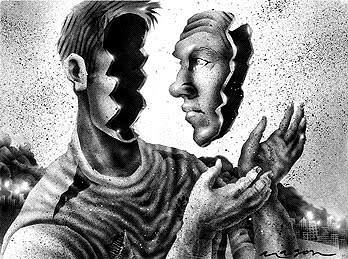Subconscious Mind Reality
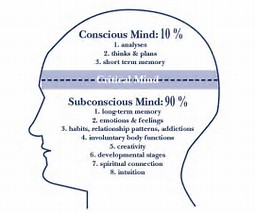
As frequently stated on this website, the subconscious mind plays a huge role in orchestrating your social behavior, your angst/happiness ratio. It is the source of your instant menu of action imperatives for your participation in social transactions. No understanding of the causes and effects of social behavior is possible without knowing the role the subconscious mind plays in social affairs, especially those that impinge on your health and performance. This role is multidimensional. The subconscious mind:
- Makes all of your social action choices on autopilot, always first to tell you what to do
- Controls your endocrine system according to what it decides is going on in your context
- Changes itself and its memory data stores every day
- Incapable of distinguishing right from wrong
- Unable to cope with unfamiliar complexity
- Never considers feedback in making decisions
- Initializes and runs its situation recognition program to completion in a centisecond.
The absurdities, irrationalities, and self-contradictions produced are just another day at the office for your subconscious mind. Science has recently shown your brain’s reality refresh time is 15 seconds. As mentioned, science has also has determined that your subconscious brain comes to conclusions about what you are to do in a centisecond. Don’t wonder why your cognitive machinery can’t make prudent allocations of your efforts.
Our subconscious mind and the social network
The brain of a node on the social network (you) consists of two separate, distinct “minds” – the conscious and the subconscious. Subconscious or unconscious mind, it’s still your brain powerhouse. This bifurcation of intellectual functionality is highly significant to MitM health. Essentially all of the communications circulating over the entangled social network are conducted by biased, irrational, fast-acting subconscious minds. The invariant genome of humankind took evolution three million years to get Homo to the Stone Age version we share today.
Your subconscious mind:
- Contains 90% of all the information processing capacity of the whole brain.
- It’s memory bank is peppered with unclassified, untagged garbage information
- Directly receives and processes all sensory information
- Contains and reconfigures your the memory bank while you sleep
- Reacts instantly, without due considerations, to whatever happens to be zooming by
- Operates your endocrine system
- Operates the sensors detecting the world you live in
Your consciousness mind takes time to test and consider the relevant facts and produce a logical choice of task action. Your 10% conscious mind, capable of study, reflecting and rational thought, is far too slow for playing in the social sandbox. To the network buzzing with make-believe, implementation truth and logic are seen as setting intolerably bad examples for social interaction. The conclusion that we are simply actuators for executing subconscious-mind imperatives, however, is premature. You have veto power, but it’s on cognitive manual, not on automatic. Cognition is a glucose glutton.
Because it imagines everything from a memory full of garbage and dreamed-up narratives that it overwrites daily, without bothering to gather facts or use formal logic, it is delusional (false, fixed beliefs). Because it traffics in GIGO, our rambunctious subconscious mind is grossly incompetent in many aspects of appropriate social behavior and prudent choice-making. In other words, garbage in produces garbage out (GIGO). It works too fast to be reliable or rational. That your intuition is fast but very unreliable is settled science.
The higher we get above the mentor line, the more we appreciate the key roles cognition plays in systems-think and the process of elimination (POE). We recognize what it can do for us as well as what it can do to us. Each of us is alert to ways to get our subconscious mind to allocate some of its power towards solving the problems we can’t solve with our conscious mind. The best strategy, at this time, is to spend the day loading our minds with evidence and facts and objectives and hope the subconscious mind makes a dent on the complexity while we sleep. The thought that we have any supervisory control over our subconscious minds is ludicrous. Obviously, the various meditation practices in use don’t work on technically complex matters. Otherwise meditation would be taught in engineering university.
To protect you from burns, it will reflexively pull you away from the flames. To protect itself from the truth when the operational reality exposes its make-believe, it will throw you, itself included, under the bus. Fortunately, Nature has provided a means for you to compensate for the loose cannon, ready, fire, aim, in your cranium. You can veto acting on the screaming imperatives gushing out of the subconscious mind to create time for triage of those imperatives of task action.
To your brain, the contrast between running on subconscious autopilot and functioning on intense, protracted cognition is dramatic. It’s basically blanking out the teleprompter screen while you are running on your conscious mind.
When your subconscious mind is telling you what to do and you nobrainer comply with whatever is posted on your cranium’s teleprompter, degrading productivity is on Plan A automatic. The powerful part of your brain is always in reality-oblivious mode, where intent (what you want) is overwritten by natural law action (what you get). Attempts to defy natural law create and amplify the mess now on the world stage. Reality denial is a borrowing of trouble and indifferent Nature will deliver the consequences.
Improving productivity requires a large, running commitment of cognitive effort and physical work dictated by effective entropy-reduction methods. From fact gathering and validation to innovating a candidate solution and testing it out, it’s an all-out effort for the conscious mind. Your subconscious mind does not engage the process of elimination, a critical success factor in all productivity improvements of a social system. Any relevant information it uses comes from an untrustworthy memory bank and any missing information it needs to execute the program is made up on the fly.
How can I know what I think until I hear what I say? Rudolf Starkermann to his apprentices
We have great admiration, gratitude, and respect for our subconscious mind system. It and it alone is the big-pharma that feeds our shameless addiction to the healthy hormones, like dopamine and peptide oxytocin. However, when it comes to allocating our efforts, little gets through to implementation that hasn’t been checked out by our 10% conscious minds. Vetting the stream of imperatives posted by the 90% subconscious mind, gatekeeping, takes whatever time and energy it takes. Gatekeeping your subconscious is essential in reaching good health and GYAT status. Taking the path of least organizational resistance, obedient to authority, acting on subconscious imperatives, is express service to calamity. Instead of troubling itself with fact-gathering, thinking, and logic, the subconscious goes with nobrainer groupthink. With business-as-usual taking the place of rational thought, the issue is not about landing in hell but the speed in arriving there.
Since the thinking of MitMs has to be realistic, rational to be effective in implementation world, confront the truth about what has been learned about the unknowable subconscious. Its unalterable characteristics are why, exactly, it is essential to gatekeep your subconscious imperative display monitor. Your effort is all you can control but that is enough to endure the madness. Treat the idiosyncrasies of your subconscious mind as a constraint, not a barrier. Every implementation of the fix finds the transposition taking place in a moment, one that everyone engaged remembers in his own way.
There are several natural laws that apply in full to communication systems and control systems of all ecosystems that must be taken into account. The calamity of OD takes hold because the network of subconscious minds comprising a social system is indifferent to Nature’s laws. It fantasized its narrative to justify its choice before it went to your subconscious/conscious interface teleprompter.
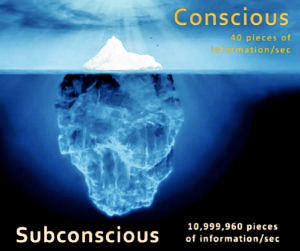
The properties, physiognomies, and limitations of your subconscious mind
Functionalities and characteristics
- Perception: sensing and interpreting, context recognition algorithms
- Information storage manager
- Opaque, unknowable, black box, inaccessible to observation
- Seat of emotion, passion
- Instant, reflexive, choice-centered
- Oblivious to mathematical physics
- Black/white, yes/no choices only
- Paranoid about assembling a plausible narrative before posting its choice
- Functions only in the now. Disregards history and ignores the future
- Ignores unfamiliar complex matters
- No ethics, morals, scruples, stakeholder considerations
- Library of invariant “human nature” customized to hunter/gather conditions
- Instincts
- Biases and reflexes
- Obedience to authority
- Controls your endocrine system and your immune system
- Sole source of the cranium’s one-way private teleprompter
- Chooses on an impetuous-automatic, unknowable basis, from its storehouse of fiction
- Impervious to
- Feedback of consequences
- Truth, ascertainable facts
- Lies
- Disturbance lessons-learned
- Contradictions
- Risk
- Never attempts to validate its stores of information as to their “truth”
- It knows nothing of natural law
- It routinely attempts to defy natural law
- Perfectly suited to science fiction
- Entropy-extraction impossibly incompetent
- Oblivious to false and missing information
- Oblivious to feedback of non-confirmatory information
- Oblivious to future, risks, the law of experience
- Oblivious to history. What it stores and recalls is fiction.
- Cannot predict, forecast, check its information quality
- Defensive
- Anti-prying, anti-curious, anti-fact-gathering
- It distrusts and fears the 10% conscious mind as an inconvenience
- Demands faith, blind acquiescence
- Baffled by the 2nd Law, coming and going
- It knows nothing about implementation and cannot speak the idiom
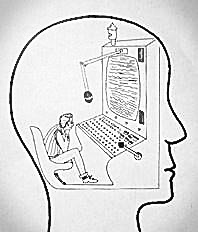
Second order attributes of your subconscious mind
- 100% of the task action imperatives posted on the subconscious teleprompter, automatically executed by the entitlementers, are produced by the subconscious. You can’t will anything to be on the monitor.
- Unable to distinguish right from wrong, our subconscious assumes it knows everything (IKE) or enough (ike)
- Everything in its long-term memory library is fiction. What it reads from your reality sensors is distorted beyond recognition by biases before it is recorded in memory.
- It processes on what it has in a centisecond
- It creates “facts” as it deems necessary to defend plausibility of choice
- It cannot distinguish its compilation of fake reality and delusion from material reality
- It cannot implement Gödel’s proof
- It cannot handle negatives – “don’t” and “not” and “if, then”
- It cannot infer or deduce, make conclusions and arguments based on formal logic
- It processes all your senses in a form incongruent with reality. E.g., optical illusions. Your sense of reality manufactured by your subconscious is a compilation of distortions. Your mental model of reality is always a fictional account.
- It operates your intuition faculty and arrives at false conclusions more than random chance.
- Defensive: much of its resources goes to the coverup of previous errors
- It will commit any crime to defend its “honor,” including killing its host
- It doesn’t know what is best for you and perforce doesn’t care
- It cannot distinguish right from wrong. It is uninfluenced by morals, ethics, integrity and humanitarianism
- It only knows a manipulated image of the present and reacts, believing its own flawed memory over the facts it faces
- It acts oblivious to consequences, feedback is nonexistent or too slow to be useful.
- It frets over what is already lost by its incompetency
- Normal is illogical and irrational
- Risk indifferent
- Indifferent to your welfare
- Oblivious to inalienable rights
- It cannot handle future, consider potential consequences – it is exclusively nowsight
- It cannot deal with the 2nd Law, ecosystem laws
- It cannot qualify or filter the information it processes.
- It does not search for actionable-quality facts, it makes stuff up on the fly
- Acts only on its memory, not presented facts
- It cannot foresee, formulate goals and objectives. It doesn’t systematically goal-seek anything.
- It has no benchmark references. It doesn’t check itself against any standards. No stop rules
It’s interesting that the field of social psychology keeps adding to the list of cautions and warnings about the untrustworthy subconscious mind. Science never finds anything reliable about the subconscious that’s useful to engaging reality. Fortunately, research has taken intuition out of the sociology toolbox, e.g., and nuked it. The supremacy of intuition and gut feeling in social behavior had a long run as a substitute for the labor of thinking. Potentates proclaim possession of the most common of the common senses and you obey their groupthink creed, ignoring your own sense of reality seen with “your lying eyes.”
Gut-feeling, intuition-inspired task action imperatives run smack into the laws of reality and logic, falling flat in implementation.
Common defense mechanisms
Dozens of different defense mechanisms of the untrustworthy subconscious mind’s bad choices have been identified. Some are used more commonly than others. These psychological responses are not under a person’s conscious control. That means you don’t decide what you do when you do it. Here are a few common defense mechanisms:
- Denial: it occurs when you refuse to accept reality or facts. In denial.
- Repression: unsavory thoughts, painful memories, or irrational beliefs.
- Projection: attributing reality to another person.
- Displacement: Kicking the dog when you come home from work.
- Regression: Avoiding everyday activities because they feel overwhelming.
- Rationalization: creating intellectual alibis for bad choices.
- Sublimation: redirecting angst into an object or activity that is appropriate and safe.
- Reaction formation: choosing to behave in opposition to your instincts.
- Compartmentalization: Granulation and dispersion.
- Intellectualization: Fighting a psychological phenomenon with facts.
In the social system we have inherited by genetic endowment, it is most unfortunate that you cannot learn from our mistakes, only your own.
The subconscious mind cannot recognize novel complexity for what it is. Plan B is one of those cases in which intuition is baffled by the facts. The situational-recognition algorithms it runs are far too fast for checking on information quality and logical triage. The subconscious mind labels novel complexity as either a threat to security or as insignificant. If there is going to be learning about novel complexity by the subconscious mind, it will happen via cognitive processing through the conscious mind. People who are socialized to not think for themselves, explain away novel complexity by all-purpose catchwords, alien forces, and both.
Living with Plan B, we remind ourselves daily that the same subconscious mind that compels us to make bad choices in Plan A also does yeoman’s service in maintaining Plan B. It only seems like the subconscious mind prefers Plan A. If you don’t intervene, the subconscious mind dreads the loss of cranial glucose from protracted cognitive effort.
In truth, because it is indifferent, the subconscious mind can be a powerful ally, especially is the arena of creativity and innovation. It takes awhile to accept our subconscious minds as they are, but it comes with Plan B experience.
The order of battle to regain your health is forced by the subconscious mind and invariant human nature. You have psychological health issues because you have given free rein to your subconscious brain, Stone Age model, to direct your efforts. Giving your choice-making needs over to your subconscious is giving unmonitored access to choice-makers you don’t even know. The grand central station of health is your subconscious.
It is imperative to understand the huge role of the subconscious mind, a GIGO factory, in choosing your efforts and the speed by which it chooses. The inescapable fact about health determination is that the subconscious mind completes the computations much too fast for any kind of input validity checking or processing logic review. If you will but focus your attention on speed of response, you can learn to tell choice-making by intuition and from thoughtful risk management. Why so fast? Think Stone Age conditions.
Our Stone Age genome considers measuring the psychological state of interlopers, man or beast, as urgent business. The no-brainer use of intuition to measure health and trustworthiness in others takes place in less than a centisecond.
In these turbulent, unprecedented times, reflexive choice-making is the borrowing of trouble. Your intuition is so loaded with blind spots, biases, and false assumptions that any choice it makes is unreliable. If you proceed burdened with high anxiety anyway, trust building is impossible. Your “true” status is read by others before you can blink. Game over.
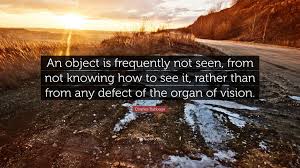
Views: 147


